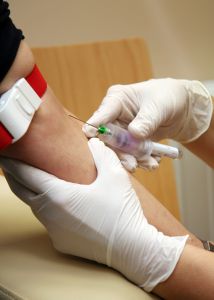Guillain Barre Syndrome (GBS) is a rare form of acute neuromuscular paralysis. It is often characterized by numbness or tingling sensation on the legs and arms often accompanied by loss of feeling in the arms, legs, and face. GBS generally begins with descending paralysis and tingling. In the Miller Fischer variant of GBS, there is a progressive ascending paralysis that begins in the toes with the loss of deep tendon reflexes.
BLF has fought for many clients who have developed GBS as a result of vaccinations, specifically the flu and TDaP vaccinations. Most if not all vaccinations are capable of producing Guillain Barre Syndrome. Often, the patient develops tingling in their fingers and toes which depending on the type of GBS can progress to upper or lower extremities and even the face. Victims of GBS complain of gait difficulties, generalized weakness and fatigue. Vaccination victims may complain of being off balance and having “spongy” feet.
Clients will often seek assistance from a medical center emergency room when their symptoms become extremely exacerbated and the tingling and numbness have become severe. Some medical doctors misdiagnose GBS as being psychosomatic or a product of anxiety. If this occurs, BLF advises that clients immediately demand a neurological examination as there are clear markers of GBS following vaccination. Blood work may be taken and in the case of respiratory failure due to paralysis, chest CT and chest CT angiograms will be taken to rule out pulmonary embolus. It is not uncommon for a client to be released from a hospital on a misdiagnosis only to return a few days later when symptoms have progressed, and the client now suffers from intermittent double vision, major fatigue and unsteady gait. Numbness and tingling from Guillain Barre can progress to affect the lower, trunk, upper extremities and face including the tongue.
Often, a GBS victim of vaccination will consult with their primary care physician with several complaints including diffuse numbness and bobbling head. Neurological assessment is often significant for slurred speech, difficulty with walking, hyporeflexic deep tendon reflexes and unsteady gait. The primary care doctor may refer the patient for a neurological consultation which may indicate tingling progression, weakness and unbalance following influenza vaccination (or other types of vaccines). The accepted timeline to prove that the vaccinations caused GBS is approximately 2-6 weeks following injection, although it is not unheard of to contract GBS earlier or later than this time frame. For example, Michael Baseluos has obtained compensation for GBS following only 1 week after vaccination and as high as 8 weeks after vaccination. The Court of Federal Claims which oversees vaccine claims generally has not found causation in cases where the person immediately developed GBS 24-48 hours after vaccination or more than 2 months after vaccination. That being said, each case is different and you should not assume you are not entitled to compensation. Immediately contact a GBS vaccine injury attorney to assess your rights.
Nerve conduction studies are an excellent way to gauge damages from GBS injuries in order to maximize a damage award with the National Vaccine Injury Compensation Program. EMG studies can demonstrate demyelination or amplitude drop that suggest variations on GBS including a more severe form of acute inflammatory demyelinating polyneuropathy (AIDP). Abnormal electrodiagnostic studies are an excellent tool used by Baseluos Law Firm for Guillain Barre Clients.
 San Antonio Injury Attorney Blog
San Antonio Injury Attorney Blog


